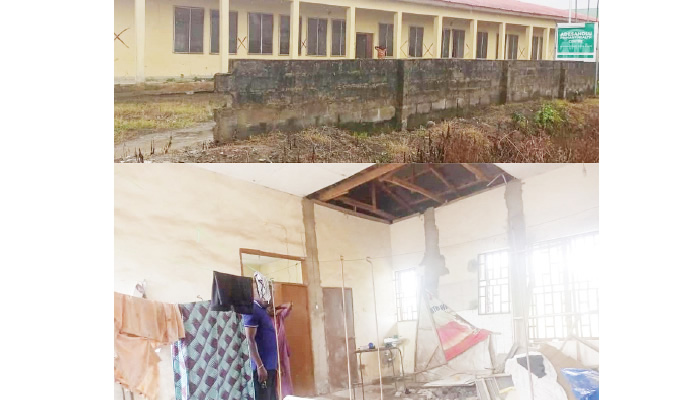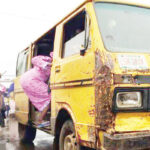
Residents of the Adesanolu in the Mowe area of the Obafemi Local Government Area of Ogun State have lamented the deplorable state of the community’s primary healthcare centre.
They said the Adesanolu Primary Healthcare Centre currently serving 106 settlements in 36 Community Development Councils is bedevilled with challenges that affect the quality of its service delivery.
PUNCH Metro’s investigation revealed that the challenges include dilapidated infrastructure and insufficient equipment among others.
Others include the case of inadequate number of personnel and poor power supply.
When our reporters visited the centre on Thursday, they noticed the poor state of the floor and walls making it not conducive for health care services.
Some of the residents told PUNCH Metro that the state provided the centre for the communities in 2007 without equipping it.
A resident, Mobolaji Ige, said, “Our health centre does not have drugs. It is the community that pays the nurses; the government only built the health centre without equipping it.
“There was a time the chairman took his generator to the hospital to power the facility. We don’t have any government intervention in this community at all.”
A nursing mother, Ifeoma Ezeokeke, told PUNCH Metro that despite registering for antenatal care in the facility after it was reopened, she could not risk giving birth there due to lack of facilities and the dilapidated state of the facility.
“I registered in the centre but I did not give birth there because of the poor facilities. I did not trust the facilities, so I had to use another one. We lack many good things in the health centre. We don’t have chairs, the structure of the building is bad. The windows are always dusty. We need chairs and beds,” she said.
Another resident, Abosede Mathew, said many residents were not aware there is a health centre in the community due to its bad state and would rather visit another one in other places.
One of the personnel who spoke on condition of anonymity complained about the state of the facility, saying the PHC is being financed with payments from patients.
She called for the government’s intervention to complement the communal effort to revive the PHC, saying, “We need the government to help us. If we have facilities in place, this PHC serving 106 communities will have high patrons and will help the people.”
The state Commissioner for Health, Tomi Coker, did not take the calls made to her telephone on Thursday.














